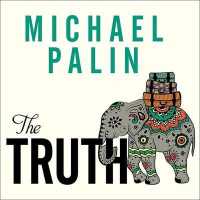- ホーム
- > 洋書
- > 英文書
- > Religion / Ethics
基本説明
Perspectives on genetically modified foods from world religions and indigenous traditions.
Full Description
Perspectives on genetically modified foods from world religions and indigenous traditions.
Modern biotechnology has surpassed science fiction with such feats as putting fish genes in tomatoes to create a more cold-resistant crop. While the environmental and health concerns over such genetically modified foods have been the subject of public debate, religious and spiritual viewpoints have been given short shrift. This book seeks to understand the moral and religious attitudes of groups within pluralistic societies whose traditions and beliefs raise for them unique questions about food and dietary practice. What questions are there for kosher Jews, halal Muslims, and vegetarian Hindus about food products containing transgenes from prohibited sources? How do these foods impact the cultural practices and spiritual teachings of indigenous peoples? Concerns from the above traditions as well as Christianity, Buddhism, Chinese religion, and ethical vegetarianism are included. Contributors look at the ethical context of each tradition and also include information from focus groups. This enlightening work concludes with recommendations for the labeling of genetically modified foods.
Contents
Introduction
Conrad G. Brunk and Harold Coward
1. Genetics and Genetically Modified Organisms
Samuel Abraham
2. Ethical Perspectives on Food Biotechnology
Paul B. Thompson
3. Does Vegetarianism Preclude Eating GM Foods?
Lyne Létourneau
4. "When You Plow the Field Your Torah Is with You": Genetic Modification and GM Food in the Jewish Tradition(s)
Laurie Zoloth
5. Some Christian Reflections on GM Food
Donald Bruce
6. Genetically Modified Foods and Muslim Ethics
Ebrahim Moosa
7. A Hundred Autumns to Flourish: Hindu Attitudes to Genetically Modified Food
Vasudha Narayanan
8. The Karma of Genetically Modified Food: A Buddhist Perspective
David R. Loy
9. "So That You May Have It with No Harm": Changing Attitudes toward Food in Late Imperial China
Hsiung Ping-chen
10. Born from Bears and Corn: Why Indigenous Knowledge Systems and Beliefs Matter in the Debate on GM Foods
Shiri Pasternak, Lorenzo Mazgul, Nancy J. Turner
11. Regulatory and Innovation Implications of Religious and Ethical Sensitivities concerning GM Food
Conrad G. Brunk, Nola M. Ries, Leslie C. Rodgers
Contributors
Index








